Corpus Christi Blog

The Interrelatedness of the Trinity and the Eucharist
05-26-2024Weekly ReflectionJen Arnold, M.A.Today, we celebrate the Solemnity of the Most Holy Trinity, which focuses on the mystery of God as three persons in one divine nature. We are also in the midst of a national Eucharistic Revival to increase understanding and faith in the reality of the Eucharist. The Catechism refers to the mystery of the Most Holy Trinity as “the central mystery of the Christian faith and of Christian life” and refers to the Eucharist as “the source and summit of the Christian life,” positioning both mystical realities at the center of everything we believe and live as Catholics (CCC 261, 1324). Given their importance, the two mysteries are necessarily linked, with neither able to exist without the other, providing the foundation for all other doctrines and matters of faith. Let's explore the relationship between them to draw ourselves deeper into the gift of these mysteries.
READ MORE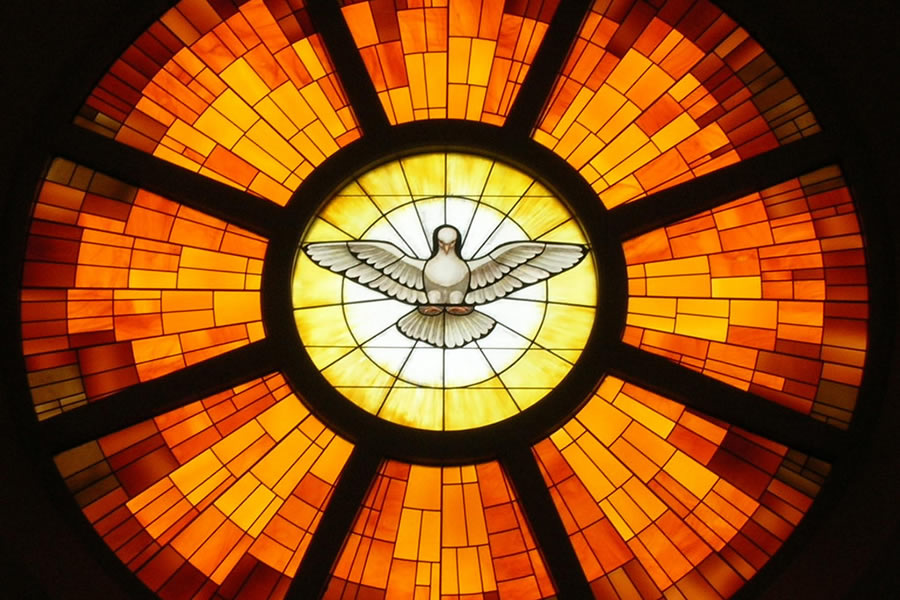
The Holy Spirit — A Mighty Rushing Wind
05-19-2024Weekly ReflectionJen Arnold, M.A.“When the day of Pentecost arrived, they were all together in one place. And suddenly there came from heaven a sound like a mighty rushing wind, and it filled the entire house where they were sitting.”- Acts 2:2
Pentecost is the day we celebrate the Holy Spirit, the gift Jesus promised to send us after his ascension to offer us guidance and wisdom as we travel on our earthly journey. The Holy Spirit is a distinct person of the one Triune God with his own attributes and activity. Still, he is arguably the most difficult for our human minds to comprehend. During Pope St. John Paul II’s general audience on October 17, 1990, he provided some catechesis on how the Church uses symbols to give us insight into who the Holy Spirit is and how he exercises his divinity in our lives.
READ MORE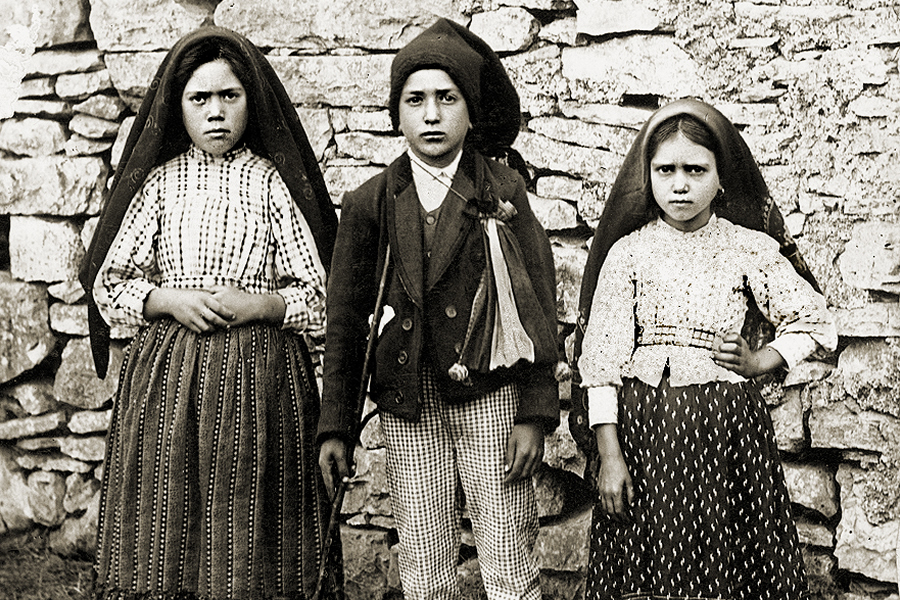
How the Message of Fatima is Still Relevant Today
05-12-2024Weekly ReflectionJen Arnold, M.ATomorrow, we celebrate the feast of Our Lady of Fatima, which commemorates the visits Mary paid to three shepherd children – Lucia, Francisco, and Jacinta – in Portugal in 1917. During her visits with them, the Blessed Mother warned them about the world's state, the consequences of unrepented sin, and what would happen if people continued to offend God. She also communicated concrete actions the faithful can take to change the trajectory of the world. Even though these visions occurred at a specific time in history, the message of Fatima is still relevant today, and it is even more dire than when it was first presented. Therefore, it is a good idea to reexamine Fatima's message through the lens of our current times and learn how to engage in some of the battles we see going on around us today.
READ MORE
Eros & Agape
05-05-2024Weekly ReflectionJen Arnold, M.A.A couple of weeks ago, on Good Shepherd Sunday, I discussed ways that God expressed his ultimate love for us by emptying himself (kenosis). First, in the Incarnation, he humbly unified his divine nature with our human nature, and then he again emptied his very life when he died on the cross for our salvation.
This Sunday’s readings are also about love — specifically, how God has shown his love for us and how we are called to respond by loving him in return and loving others. In the gospel reading, Jesus says, “Love one another as I have loved you.” In other words, he exemplifies love in action, and we are challenged to imitate this divine love as best we can in our humanity.
READ MORE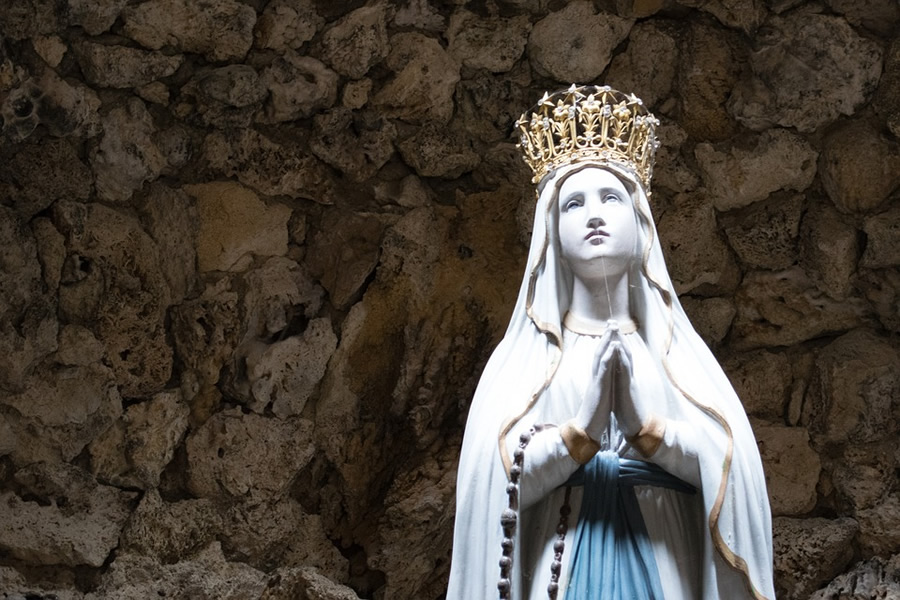
Mary Gardens
04-28-2024Weekly ReflectionJen Arnold, M.A.It is no secret that Catholics honor Mary. (For a proper understanding of the difference between worship and honor, you can see the article on my website on Latria vs Dulia.) By virtue of being Jesus’ mother, as well as the catalyst for his first miracle that initiated his public ministry, and by staying by his side all the way to the foot of the cross on Calvary, Mary provided a perfect example of what it means to be a Christian disciple with perfect faith. The Catholic Church has a variety of devotions in her honor to assist us on our own journeys. The rosary is a prayer containing 20 mysteries that represent pivotal events in the lives of Mary and Jesus. The Way of the Cross enables us to meditate with Mary as she followed Jesus during his passion and death. The Church has also given her various titles to reflect her many attributes, such as the Immaculate Conception, Queen of Angels, or Mother of Sorrows. In this piece, I will explore a lesser-known devotion in honor of the Blessed Mother: Mary Gardens.
READ MORE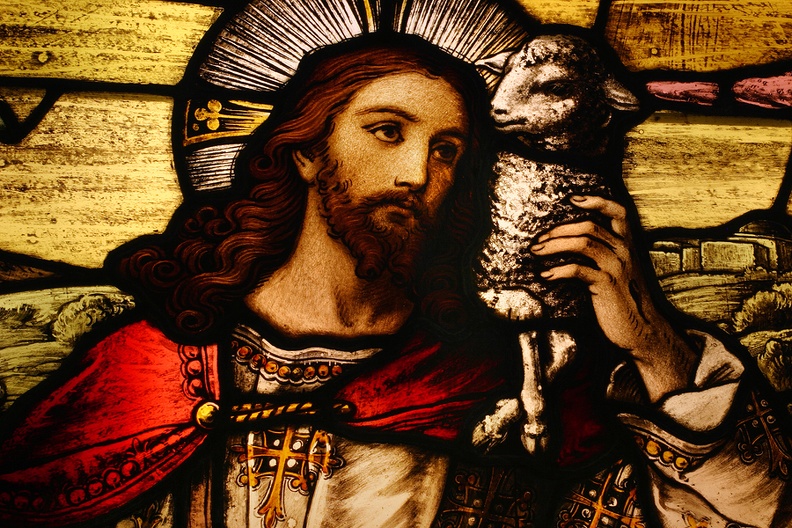
Kenosis
04-21-2024Weekly ReflectionJen Arnold, M.A.Today, we celebrate Good Shepherd Sunday, when we reflect on how Jesus is the shepherd who lovingly cares for his flock, leading them in the way they should go. The topic I have chosen for today's article – Kenosis – is most often discussed in the context of Good Friday, but I find it relevant to today’s theme as well.
To begin our discussion on kenosis, we will first look at the words of St. Paul:
…though he was in the form of God, [he] did not regard equality with God something to be grasped. Rather, he emptied himself, taking the form of a slave, coming in human likeness; and found human in appearance, he humbled himself, becoming obedient to death, even death on a cross. Because of this, God greatly exalted him and bestowed on him the name that is above every name… (Phil 2:6-9, emphasis added)
READ MORE
The Sign of the Cross
04-14-2024Weekly ReflectionJen Arnold, M.A.Today, I'm going to talk about something that most, if not all, Catholics tend to take for granted — the sign of the cross. It is a ritual we perform for various purposes, but primarily in prayer. While it is natural to us and may not often be consciously thought about, the sign of the cross has been the source of some controversy in Church history and even up to today. So, let's explore the sign of the cross, its history, significance, and how it has been historically defended.
READ MORE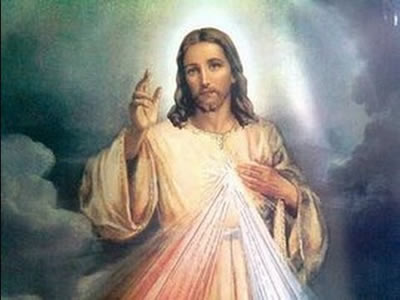
Dynamic Forgiveness
04-07-2024Weekly ReflectionJen Arnold, M.A. in Theology and CatecheticsToday is Divine Mercy Sunday, which the Church designates to focus on the profound mercy Jesus offers us by forgiving our sins. Most of us are grateful for God's infinite mercy and forgiveness because we know we would be lost without it. We are also aware that we are called to offer forgiveness to others in response to the forgiveness God so freely gives us. The Our Father prayer indicates that offering forgiveness to others is obligatory if we want to ask it for ourselves – “Forgive us our trespasses as we forgive those who trespass against us.” However, it is sometimes difficult to take what we know in our minds and put it into practice. In this article, I would like to present a method by which we can have a more dynamic participation in the process of mercy and forgiveness, where we can work with the Lord in bringing about conversion.
READ MORE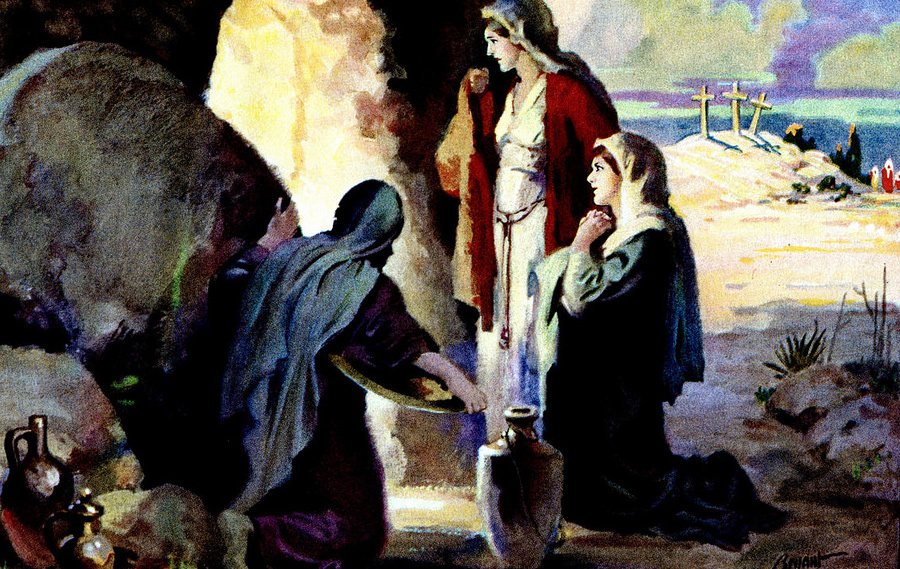
The Dignity of Women Reaffirmed at the Resurrection
03-31-2024Weekly ReflectionJen Arnold, M.A. in Theology and CatecheticsHappy Easter!
The reality of the glorious Resurrection of Jesus Christ is central to our Catholic faith and something to be joyfully celebrated. Today, I want to reflect on how the story of the first Easter highlights the dignity of women through the person of Mary Magdalene.
Before I begin, I would like to establish that Jesus’ entire ministry revealed the dignity of women. First and foremost, his public ministry started at the behest of his blessed mother at the wedding feast of Cana, even after telling her that his "hour had not yet come” (Jn 2:4). From the very start, we see a 30-year-old man attentive and obedient to his mother in a patriarchal society. While he is the one doing the ministry work — in this case, changing water into wine — we see the feminine genius quietly and subtly orchestrating things behind the scenes, not seeking the spotlight for herself.
READ MORE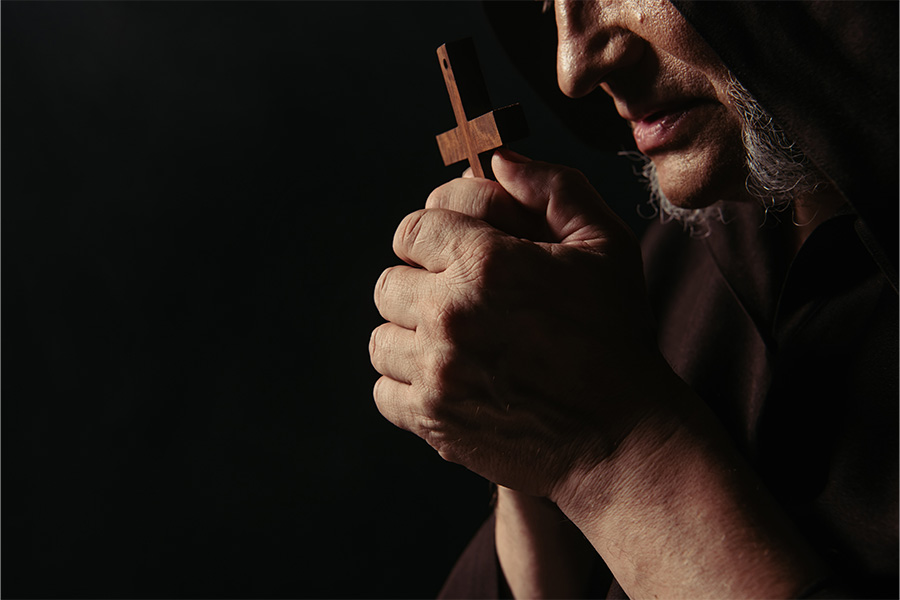
Lent with St. Francis — Part 6: Fervor & Diligence in Prayer
03-24-2024Weekly ReflectionJen Arnold, M.A. in Theology and CatecheticsIt is now the final Sunday in Lent and Palm Sunday. Next week is the joyful celebration of the Resurrection of Jesus Christ. First, we must journey through this dark Holy Week because, without the Passion and Crucifixion, there can be no Easter. We all go through dark times in our own lives. Afterwards, we can often recognize how God was working through it all, providing us with our own little easters to celebrate. Just as Jesus prayed in the Garden of Gethsemane before his Passion, we will all fare better when we stay close to God while carrying our crosses. This leads us to the final virtue of St. Francis in this Lenten series.
READ MORE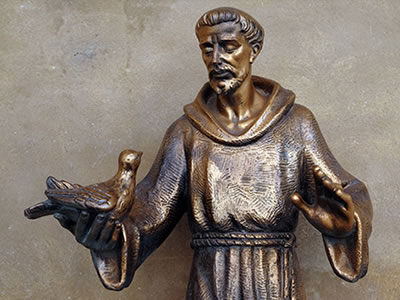
Lent with St. Francis — Part 5: Charity
03-17-2024Weekly ReflectionJen Arnold, M.A. in Theology and CatecheticsHow is your Lent going? Some years, we have good Lenten seasons where we feel spiritually strong and resilient and experience positive effects from prayer, fasting, and almsgiving. Some years, our Lent is not as good, and we fail to resist the temptations Satan throws our way in his attempts to distract us and derail our pursuits of growing in holiness. If this Lent has been more of a struggle for you, particularly in regards to practicing the virtues of St. Francis of Assisi, I want to offer some encouragement.
READ MORE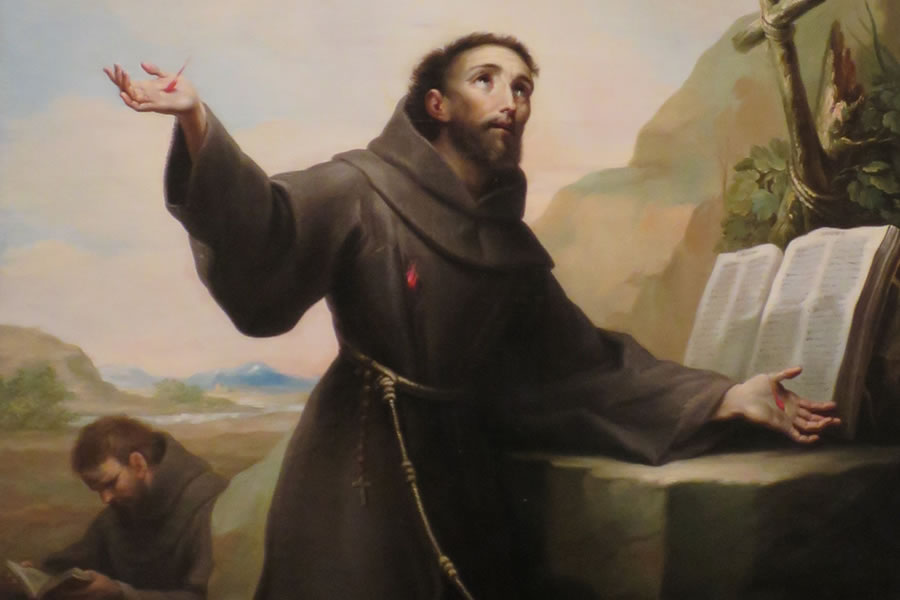
Lent with St. Francis — Part 4: Piety
03-10-2024Weekly ReflectionJen Arnold, M.A. in Theology and CatecheticsWe are now at about the halfway point of our Lenten journey with St. Francis. As we have explored the depth with which he embraced a life of virtue and abandonment to God, I hope you have felt inspired and encouraged to pursue your own life of virtue and holiness. If, on the other hand, you have been tempted to feel discouraged because it seems impossible to obtain St. Francis' mastery of virtue, remember that our spiritual life is always a journey, not a destination, and even some of the greatest saints, including Francis, have a sinful past. No matter how small the steps, keep moving forward! We will now turn to another of the saint's great virtues as described by St. Bonaventure.
READ MORE
Lent with St. Francis — Part 3: Poverty
03-01-2024Weekly ReflectionJen Arnold, M.A. in Theology and CatecheticsThis Lent, we have been reflecting on the virtues that St. Bonaventure described in his book about St. Francis of Assisi, so that we might strive to embody them on our own journeys of holiness. The first virtue we covered was austerity and how Francis practiced forms of physical penance to tame the desires of the flesh and yoke them to the suffering of Jesus for the salvation of souls. Then, we looked at humility and obedience and how these virtues glorify God by recognizing that any gifts a person possesses, or any authority placed over him, is only because God has willed it to be so. We have now reached the Third Sunday of Lent, focusing on the virtue of poverty embraced by St. Francis.
Chapter Seven: Of His Love of Poverty, and the Wonderful Provision Made for All His Wants by God
READ MORE